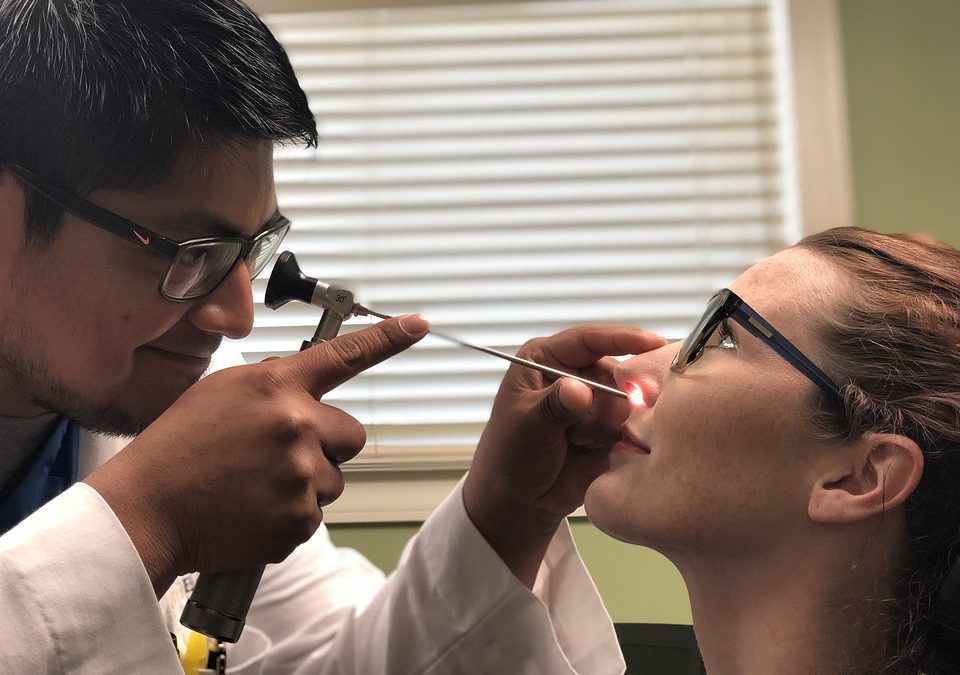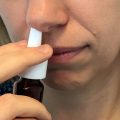Table of Contents
If there is an inflammation in the nose which is an allergic response to an allergen, this is called allergic rhinitis. Different people might experience different allergen, this allergen then causes allergic rhinitis. They could be from simple grass, pollen, dust, animal fur, or even mold. Pollen allergy is also called as hay fever in some temperate countries. While in tropical countries, if you have the dust mite allergy is the common cause. There is a natural defense when your body comes in contact with allergens, the defense mechanism is a chemical release like histamine. The aforementioned things are part of the symptoms of sinusitis. Other things that could worsen your allergic rhinitis are humidity levels, cigarette smoking, wind, haze, perfumes, hairspray, and even chemical fumes. In this article, we will learn all the symptoms, causes, treatments and management options for your illness.
Overview of Allergic Rhinitis
Your condition could easily affect everyone. But, just like any other common illnesses, your allergic rhinitis condition is stemmed from a long family history. Allergic rhinitis is also a family member of eczema and asthma. If you have one of these conditions, you could be at risk to have more.
Some symptoms for this illness will include runny nose, sneezing, itchy nose, stuffy nose, as well as watery and itchy eyes. If these symptoms will be worse, it completely is up to the reaction to allergens as well as the individual. Some people experience just mild symptoms occasionally, but some will experience these symptoms year-round.
To fully diagnose allergic rhinitis, you need to know the physical examination as well as a good history, if you are only experiencing mild symptoms. You may need to undergo a skin prick test. In this test, doctors will check your allergic response to certain allergens. This test would involve the placement of certain substances on your skin. The doctor would see how your body would react to these allergens. But if you are experiencing frequent or serious symptoms, you should consult an Ear, Nose, and Throat (ENT) specialist for a correct consultation.
“ENT specialists have specific tools like the nasoendoscope, which examines the inside of one’s nose and throat to help assess one’s condition; ENT specialist will educate you on how to manage your condition as well as prescribe you with medications to help alleviate some of the symptoms. This is especially ideal if your condition is chronic and you need long-term care,” said Dr. Yakes.
Allergic Rhinitis Treatment and Management
Treating allergic rhinitis comes with tasks. There is a certain world initiative in fighting allergic rhinitis. The initiative is called Allergic Rhinitis and its Impact on Asthma (ARIA). The ARIA is run by the World Health Organization as well as non-governmental association. It is officially classified as an illness. In fact, it is a chronic disease, however, it doesn’t mean it can’t be controlled or managed.
Nasal decongestants and antihistamines are some common short-termed treatment options available. However, the long term options are allergy shots and nasal steroids. You should not confuse nasal decongestant with nasal steroids, however, they are two different things. Rhinitis medicamentosa is a disease in which patients could be at risk, especially if they use nasal decongestants more than one to two weeks. This could happen when the decongestant will start to be irritated and your sinusitis will be worse. According to Dr. Year, a sinusitis expert, “Nasal steroids are an effective long-term option, but there’s little point in having them if you don’t know how often to use them, or you’re not patient enough to give them time to work.”
Dr. Yeak clarified that if a person used a steroid once, they need to take them forever, however, this is not the case. Dr. Yeak said, “Much like how patients with diabetes and high blood pressure can sometimes reduce their need for medication by maintaining a healthy diet and exercise, patients with allergic rhinitis can often stop medication after 2 or 3 months, depending on how well they can control their environment.”
If you can’t fully manage your allergic rhinitis, you need to visit an ENT specialist. This would clear up the confusion about these matters. An ENT specialist would be able to help you to rule out some more serious sinus condition. This includes chronic sinusitis as well as polyps.
Nasal Steroids
Nasal steroids should not be mixed up with the steroids used by bodybuilders, mainly because these two are different things. The former is formulated to act on your nose with minimal absorption in the other parts of the body. It is very unlikely that you have a serious side effect when you spray nasal steroids directly in your nose. The USFDA (U.S. Food and Drug Administration) has put a check mark on using this steroid on children as young as 3 years old. Some people are also worried that nasal steroids could also suppress the immune system, this would make them more susceptible to certain illnesses just like the flu. However, thanks to the European Position Paper focusing on Rhinosinusitis and Nasal Polyps (EPOS), things have now been researched. Such as that nasal steroids could help the reduction of inflammation especially when you have an infection. It is not a hidden fact that allergic rhinitis is a chronic problem, however, it can be controlled if you know how to manage it. You should also have proper use of medication as well as allergen avoidance.
To fully prevent symptoms of allergic rhinitis happening again, you should do several steps. Decongestants and antihistamines are very useful, however, you should use nasal steroids on a regular basis. Some people believe that it will take up to a week of regular usage before you feel any significant improvement, so this means that you need to continue the medication even if you already feel.
Immunotherapy
To control allergic rhinitis, you should consider immunotherapy. This therapy could be used for 15 years without ever needing medication! An added fact is that it can be used under the tongue, a process called sublingual immunotherapy. (SLIT)
Tips to Reduce Allergen Exposures
- Have your house clean at all times. Make sure there is no clutter through mopping and vacuuming regularly.
- When you pass or stay by flowered or grassy areas, make sure to keep your nose and mouth cover. Do this especially during the haze.
- What can surely irritate your nose is the fur coat of your pet, for this, you should not let your pet sit on your bed or even your furniture.
- Use and wash dust mite-proof bed sheets every week. Make sure to use hot water when washing it.
- Discard old bolsters and pillows.
- Have air filters ready in your home.
- Establish good ventilation as well as good humidity to prevent mold.






 I love to write medical education books. My books are written for everyone in an easy to read and understandable style.
I love to write medical education books. My books are written for everyone in an easy to read and understandable style.